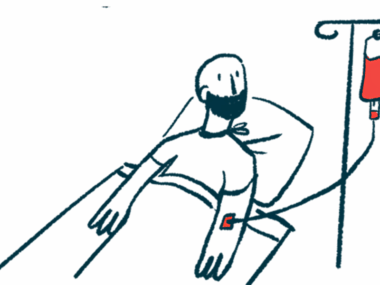Vyvgart may be safe, effective in treatment-resistant MG: Review
Patients saw symptoms ease, ability to perform daily activities improve
Written by |

People with refractory myasthenia gravis (MG) who fail to respond to several treatments may be effectively treated with Vyvgart (efgartigimod alfa-fcab), regardless of the type of self-reactive antibodies they carry.
That’s according to a systematic review and meta-analysis, which showed that patients treated with Vyvgart saw their symptoms ease and their ability to perform daily activities improve. The treatment was also well-tolerated, with few serious adverse events reported.
“Our study demonstrates that [Vyvgart] is highly effective and well-tolerated in patients with refractory MG. These findings suggest that [Vyvgart] is a promising drug for the treatment of MG,” researchers wrote.
The study, “The efficacy and safety of efgartigimod for refractory myasthenia gravis: a systematic review and meta-analysis,” was published in the European Journal of Medical Research.
Vyvgart works to block key protein
MG is caused by self-reactive antibodies targeting proteins involved in nerve-muscle communication, most commonly acetylcholine receptors (AChRs). This leads to symptoms of muscle weakness and fatigue. The self-reactive antibodies driving MG belong to the IgG class of antibodies.
Vyvgart is approved to treat people with generalized MG who are positive for anti-AChR antibodies. It works to block the neonatal Fc receptor, a protein that normally helps stabilize IgG antibodies circulating in the bloodstream — including those driving MG — and prevent their destruction. Through this mechanism, the therapy is expected to accelerate the rate at which self-reactive antibodies are broken down, lowering their levels and easing MG symptoms.
In this study, researchers conducted a systematic review and meta-analysis of studies analyzing the efficacy and safety of Vyvgart in real-world settings. The analysis comprised 10 studies involving a total of 308 patients, all of whom were considered either unresponsive to MG treatments or in whom the disease was not well controlled with medication.
Participants had a mean age ranging from 45.9 years to 65.6 years and were mainly women (64.9%). Vyvgart was initiated at a 10 mg/kg dose via intravenous, or into-the-vein, injection once weekly for at least one four-week cycle.
‘Patients have shown improvements in clinical symptoms and quality of life’
Pooled data from the studies revealed a response rate to the first treatment cycle of 78%, which is “a favorable efficacy rate for [Vyvgart] treatment,” according to the researchers. Response rate was defined as a reduction of the MG Activities of Daily Living (MG-ADL) score of at least two points over four weeks, which indicates meaningful improvement. MG-ADL is a standard measure of MG severity that is designed to evaluate the impact of symptoms on a patient’s daily life.
A subgroup analysis based on antibody type revealed a response rate of 79.2% in the five studies where all participants had anti-AChR antibodies. In the other studies that did not differentiate antibody types, the response rate was 76.2%.
Based on its positive efficacy and safety, patients with refractory MG of all antibody subtypes ought to attempt to select [Vyvgart].
The pooled incidence of adverse events was 38% across nine studies. These events mainly included upper respiratory and urinary tract infections (30 infections; pooled incidence of 7%) and headaches (35 events; pooled incidence of 7%).
Fifty cases of mild adverse events, including diarrhea, nausea, sore lips, stiffness, and neck rash, had a pooled incidence of 16%. Serious adverse events, including worsening MG or MG crisis, rectal cancer, and depression, had a pooled incidence of 1%.
“Based on its positive efficacy and safety, patients with refractory MG of all antibody subtypes ought to attempt to select [Vyvgart],” the researchers wrote. “Patients have shown improvements in clinical symptoms and quality of life,” they wrote, noting that “compared with other immuno-suppressants, the adverse reactions associated with [Vyvgart] are more tolerable.”





Leave a comment
Fill in the required fields to post. Your email address will not be published.